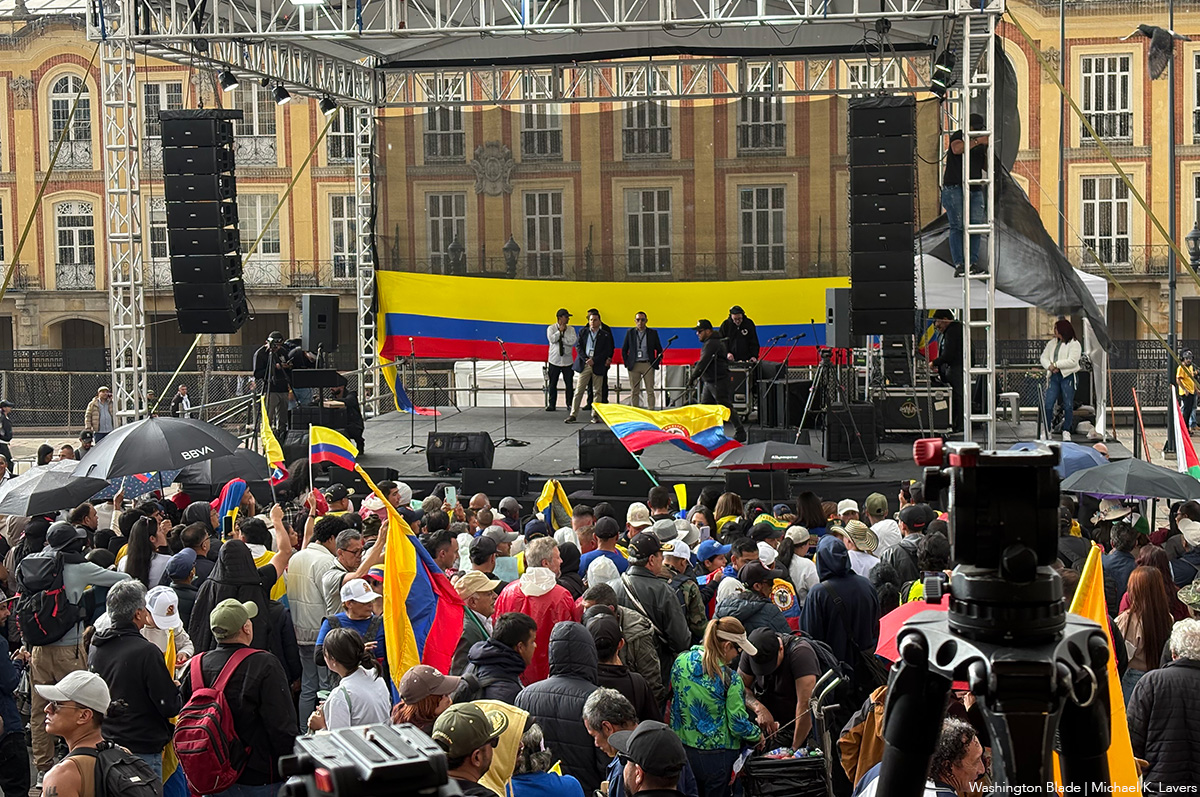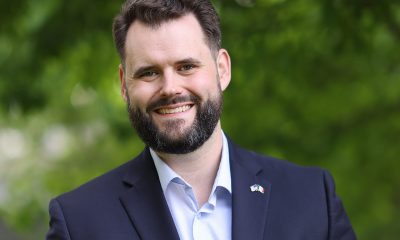South America
Peru continues to lag behind other Latin American countries on LGBTQ rights
Attempts to ‘heal homosexuality’ remain legally protected
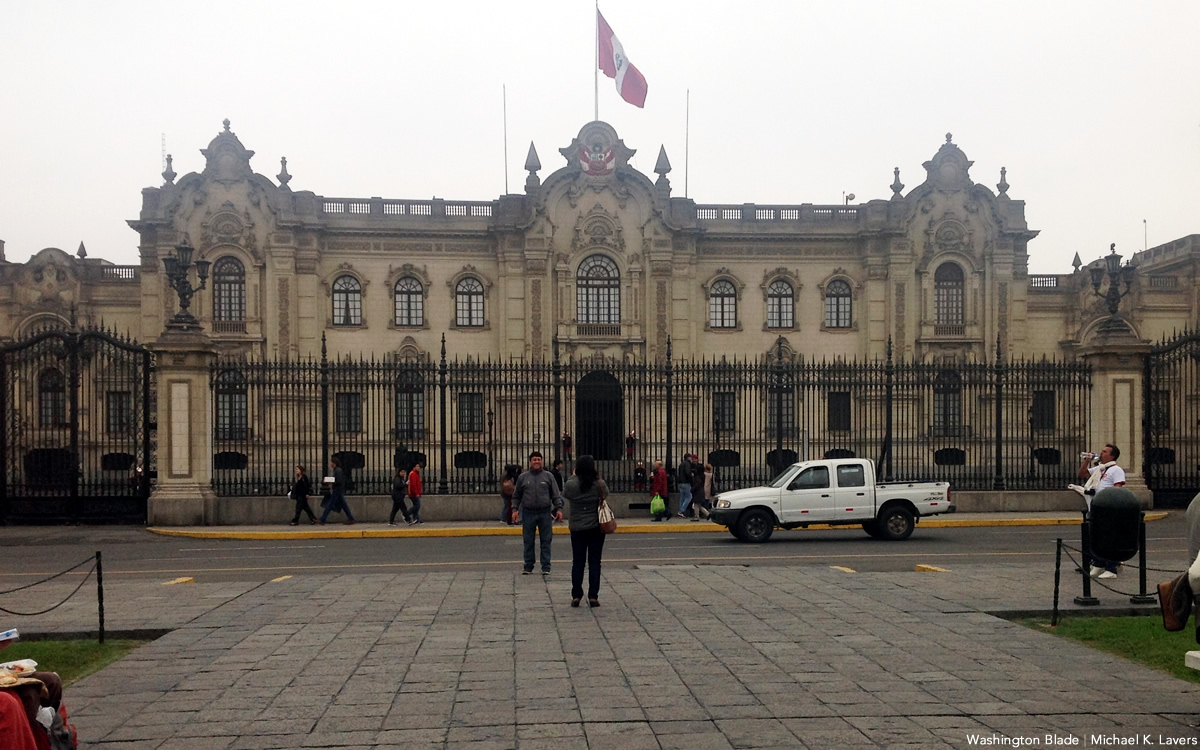
Peru is one of the few Latin American countries without pro-LGBTQ laws, and this evident backwardness in comparison to neighboring countries translates into a lower quality of life for those who do not identify as heterosexual.
LGBTQ Peruvians are highly vulnerable because of their sexual orientation and gender identity, and they also lack a regulatory framework that recognizes and protects them. This reality makes it more difficult for them to fight for equal rights in the areas of health, education and work, among others.
So-called conversion therapy is still allowed in Peru, and attempts to “heal homosexuality” remain legally protected.
The Peruvian Ministry of Justice at the end of 2020 requested for the first time a survey that focused on the LGBTQ community. It revealed 71 percent of Peruvians considers LGBTQ people are the most discriminated group in the country.
The Inter-American Court of Human Rights in 2020 held the Peruvian state responsible for the rape and torture of Azul Rojas Marin, a transgender woman, and ordered it to provide medical, psychological and/or psychiatric treatment and to prosecute the officers who tortured her. The ruling also called on Peru to track anti-LGBTQ violence in the country and develop a national strategy to respond to it.
None of this has been complied with so far, demonstrating the state’s indifference to LGBTQ rights.
“LGBTI people are succinctly recognized in some regional or municipal ordinances at the local level, however, they have no recognition in any national legislation explicitly, which addresses their needs,” George Hale, institutional development director of Promsex, a Peruvian LGBTQ rights group, told the Washington Blade.
Jorge Apolaya, who has been organizing Pride marches in Peru for years, said that “discrimination against LGBTQ+ people in the country is associated with a heterosexist culture that continues to permeate the different spheres of society, not only in public services that should be available to all people regardless of their sexual orientation and/or gender expression or identity, but also in families whose structures continue to violate non-heterosexual people.”
Peruvian lawmakers recently passed a bill that eliminates the possibility of having comprehensive sexual education with a gender focus in schools, handing that power to parents. The country is one of the few in South America that allows it.
Most of the activists in Peru with whom the Blade spoke agree that previous governments have made no progress on LGBTQ rights, and that scenario will not improve because President Pedro Castillo, who took office last year, has publicly stated LGBTQ rights are not a priority for his administration.
Then-Congressman Carlos Bruce in 2014 came out as gay in an interview with a Peruvian newspaper. Alberto de Belaunde in 2016 became the first openly gay man elected to the Peruvian Congress.
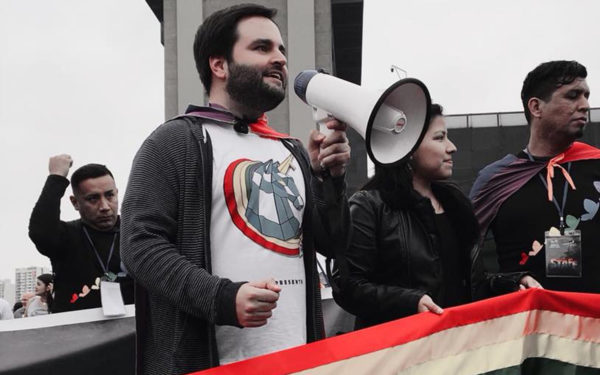
De Belaunde tried to pass various bills that his colleagues did not support. He did, however, manage to start a public debate about the lives of LGBTQ Peruvians and responded to hate speech.
De Belaunde told the Blade that “Peru is a country with a serious problem of inequality, where not all its citizens have the same rights. The LGBTQ+ community faces a serious problem of exclusion as they do not see basic rights recognized and respected, such as the right to identity or the right to equality, and this impacts their quality of life.”
He also said the COVID-19 pandemic worsened the vulnerability of LGBTQ people, particularly trans people after former President Martín Vizcarra at one point implemented a “pico y género” rule that allowed people to leave their homes based on their gender. This regulation generated a wave of violence — mainly against trans women — in Peru.
De Belaunde did not run for re-election last year, but two LGBTQ politicians entered Congress.
Susel Paredes from the center-left Purple Party became the first openly lesbian congressman in Peru. She also received the most votes of any woman who ran for Congress.
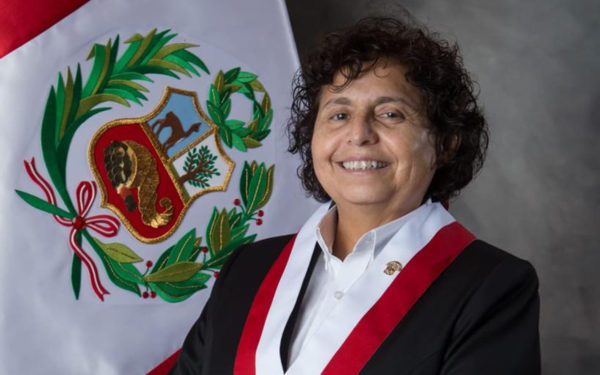
Alejando Cavero of the right-wing Avanza País party became the second openly gay man elected to Congress.
Paredes explained to the Blade from her office in Lima, the Peruvian capital, that she is currently working to pass a marriage equality bill and another that would protect people based on their gender identity. Paredes said civil unions are unacceptable “because we are looking for full equality, not special laws for us.”
Cavero, on the other hand, has announced he will soon introduce a civil unions bill.
He is also considering the elimination of the word marriage, leaving it exclusively for the religious sphere. Paredes and some Peruvian LGBTQ activists do not support this strategy.
Paredes, however, acknowledged her expectations regarding the approval of equal marriage in this Congress have no possibilities. She therefore said she will support Cavero’s civil unions bill.
“The possibilities that equal marriage will be approved are very limited and scarce due to the composition of the and scarce due to the composition of the Congress,” emphasized Paredes. “It is a Congress that has some left-wing conservatives and some right-wing conservatives. And the Peruvian right wing is absolutely conservative, there is no modern liberal right wing.”
“I believe that the civil union bill will be approved. But for that, we have to keep pushing for equal marriage. That way, the civil union bill will be approved faster and at last LGBTQ+ families will be able to have an institutionality,” she stressed.
Paredes is currently seeking legal recognition of her 2016 marriage in the U.S.
She said she will bring her case to the Inter-American Court of Human Rights if Peru’s Constitutional Court rules against her.
Colombia
Gay Venezuelan opposition leader: Country’s future uncertain after Maduro ouster
Yendri Rodríguez fled to Colombia in 2024 after authorities ‘arbitrarily detained’ him

A gay Venezuelan opposition leader who currently lives in Colombia says his country’s future is uncertain in the wake of now former President Nicolás Maduro’s ouster.
The Washington Blade spoke with Yendri Rodríguez on Thursday, 12 days after American forces seized Maduro and his wife, Cilia Flores, at their home in Caracas, the Venezuelan capital, during an overnight operation.
Maduro and Flores on Jan. 5 pleaded not guilty to federal drug charges in New York. The Venezuelan National Assembly the day before swore in Delcy Rodríguez, who was Maduro’s vice president, as the country’s acting president.
Rodríguez, who lives in the Colombian capital of Bogotá, described the events surrounding Maduro’s ouster as “very confusing.”
“It was a very surprising thing that left me in shock,” Rodríguez told the Blade. “We also thought, at least from the perspective of human rights, that the United States was going to respect international law and not go to the extreme of bombing and extracting Maduro.”
“Other questions also arise,” he added. “What could have been done? What else could have been done to avoid reaching this point? That is the biggest question posed to the international community, to other countries, to the human rights mechanisms we established before Trump violated international law, precisely to preserve these mechanisms and protect the human rights of Venezuelan people and those of us who have been forced to flee.”
Rodríguez three years ago founded the Venezuelan Observatory of LGBTIQ+ Violence. He also worked with Tamara Adrián, a lawyer who in 2015 became the first openly transgender woman elected to the Venezuelan National Assembly, for more than a decade.
Members of Venezuela’s military counterintelligence agency, known by the Spanish acronym DGCIM, on Aug. 3, 2024, “arbitrarily detained” Rodríguez as he was trying to leave the country to attend a U.N. human rights event in Geneva.
Rodríguez told the Blade he was “forcibly disappeared” for nearly nine hours and suffered “psychological torture.” He fled to Colombia upon his release.
Two men on Oct. 14, 2025, shot Rodríguez and Luis Peche Arteaga, a Venezuelan political consultant, as they left a Bogotá building.
The assailants shot Rodríguez eight times, leaving him with a fractured arm and hip. Rodríguez told the Blade he has undergone multiple surgeries and has had to learn how to walk again.
“This recovery has been quite fast, better than we expected, but I still need to finish the healing process for a fractured arm and complete the physical therapy for the hip replacement I had to undergo as a result of these gunshots,” he said.

María Corina Machado, who won the 2025 Nobel Peace Prize, and other Venezuelan opposition leaders said Maduro’s government targeted Rodríguez and Peche. Colombian President Gustavo Petro and his government also condemned the attack.
Colombian authorities have yet to arrest anyone in connection with the attack.
Rodríguez noted to the Blade he couldn’t sleep on Jan. 3 because “of the aches and pains” from the shooting. He said a friend who is “helping me out and looking after my things” was the one who told him about the operation the U.S. carried out to seize Maduro and Flores.
“He said, ‘Look at this! They’re bombing Caracas! And I was like, ‘What is this?'” recalled Rodríguez.
White House ‘not necessarily’ promoting human rights agenda
Rodríguez noted Delcy Rodríguez “is and forms part of the mechanisms of repression” that includes DGCIM and other “repressive state forces that have not only repressed, but also tortured, imprisoned, and disappeared people simply for defending the right to vote in (the) 2024 (election), simply for protesting, simply for accompanying family members.” Yendri Rodríguez told the Blade that “there isn’t much hope that things will change” in Venezuela with Delcy Rodríguez as president.
“Let’s hope that countries and the international community can establish the necessary dialogues, with the necessary intervention and pressure, diplomatically, with this interim government,” said Yendri Rodríguez, who noted hundreds of political prisoners remain in custody.
He told the Blade the Trump-Vance administration does not “not necessarily” have “an agenda committed to human rights. And we’ve seen this in their actions domestically, but also in their dealings with other countries.”
“Our hope is that the rest of the international community, more than the U.S. government, will take action,” said Yendri Rodríguez. “This is a crucial moment to preserve democratic institutions worldwide, to preserve human rights.”
Yendri Rodríguez specifically urged the European Union, Colombia, Brazil, and other Latin American countries “to stop turning a blind eye to what is happening and to establish bridges and channels of communication that guarantee a human rights agenda” and to try “to curb the military advances that the United States may still be considering.”

Yendri Rodríguez told the Blade he also plans to return to Venezuela when it is safe for him to do so.
“My plan will always be to return to Venezuela, at least when it’s no longer a risk,” he said. “The conditions aren’t right for me to return because this interim government is a continuation of Maduro’s government.”
Editor’s note: International News Editor Michael K. Lavers was on assignment in Bogotá, Colombia, from Jan. 5-10.
Venezuela
AHF client in Venezuela welcomes Maduro’s ouster
‘This is truly something we’ve been waiting for’ for decades

An AIDS Healthcare Foundation client who lives in Venezuela told the Washington Blade he welcomes the ouster of his country’s former president.
The client, who asked the Blade to remain anonymous, on Thursday said he felt “joy” when he heard the news that American forces seized Nicolás Maduro and his wife, Cilia Flores, at their home in Caracas, the Venezuelan capital, during an overnight operation on Jan. 3.
“This is truly something we’ve been waiting for for 26 or 27 years,” the AHF client told the Blade.
Hugo Chávez became Venezuela’s president in 1999. Maduro succeeded him in 2013 after he died.
“I’ve always been in opposition,” said the AHF client, who stressed he was speaking to the Blade in his personal capacity and not as an AHF representative. “I’ve never agreed with the government. When I heard the news, well, you can imagine.”
He added he has “high hopes that this country will truly change, which is what it needed.”
“This means getting rid of this regime, so that American and foreign companies can invest here and Venezuela can become what it used to be, the Venezuela of the past,” he said.
The AHF client lives near the Colombia-Venezuela border. He is among the hundreds of Venezuelans who receive care at AHF’s clinic in Cúcuta, a Colombian city near the Táchira River that marks the border between the two countries.
The Simón Bolívar Bridge on the Colombia-Venezuela border on May 14, 2019. (Washington Blade video by Michael K. Lavers)
The AHF client praised U.S. President Donald Trump and reiterated his support for the Jan. 3 operation.
“It was the only way that they could go,” he said.
The Venezuelan National Assembly on Jan. 4 swore in Delcy Rodríguez, who was Maduro’s vice president, as the country’s acting president. The AHF client with whom the Blade spoke said he is “very optimistic” about Venezuela’s future, even though the regime remains in power.
“With Maduro leaving, the regime has a certain air about it,” he said. “I think this will be a huge improvement for everyone.”
“We’re watching,” he added. “The actions that the United States government is going to implement regarding Venezuela give us hope that things will change.”
Colombia
Colombians protest against Trump after he threatened country’s president
Tens of thousands protested the US president in Bogotá

BOGOTÁ, Colombia — Tens of thousands of people on Wednesday gathered in the Colombian capital to protest against President Donald Trump after he threatened Colombian President Gustavo Petro.
The protesters who gathered in Plaza Bolívar in Bogotá held signs that read, among other things, “Yankees go home” and “Petro is not alone.” Petro is among those who spoke.
The Bogotá protest took place four days after American forces seized now former Venezuelan President Nicolás Maduro and his wife, Cilia Flores, at their home in Caracas, the Venezuelan capital, during an overnight operation.
The Venezuelan National Assembly on Sunday swore in Delcy Rodríguez, who was Maduro’s vice president, as the country’s acting president. Maduro and Flores on Monday pleaded not guilty to federal drug charges in New York.
Trump on Sunday suggested the U.S. will target Petro, a former Bogotá mayor and senator who was once a member of the M-19 guerrilla movement that disbanded in the 1990s. Claudia López, a former senator who would become the country’s first female and first lesbian president if she wins Colombia’s presidential election that will take place later this year, is among those who criticized Trump’s comments.
The Bogotá protest is among hundreds against Trump that took place across Colombia on Wednesday.
Petro on Wednesday night said he and Trump spoke on the phone. Trump in a Truth Social post confirmed he and his Colombian counterpart had spoken.
“It was a great honor to speak with the president of Colombia, Gustavo Petro, who called to explain the situation of drugs and other disagreements that we have had,” wrote Trump. “I appreciated his call and tone, and look forward to meeting him in the near future. Arrangements are being made between Secretary of State Marco Rubio and the foreign minister of Colombia. The meeting will take place in the White House in Washington, D.C.”
